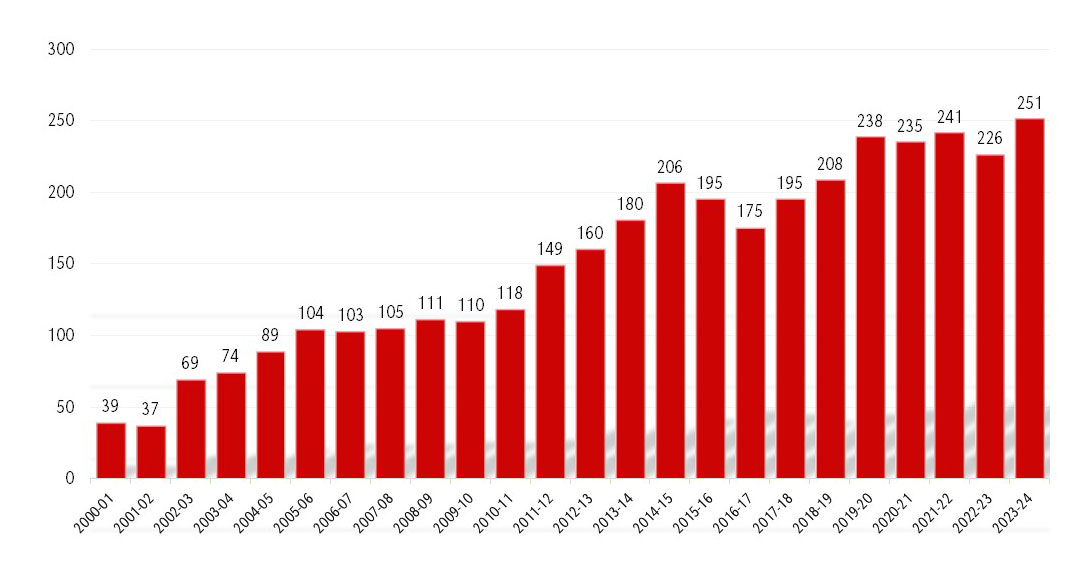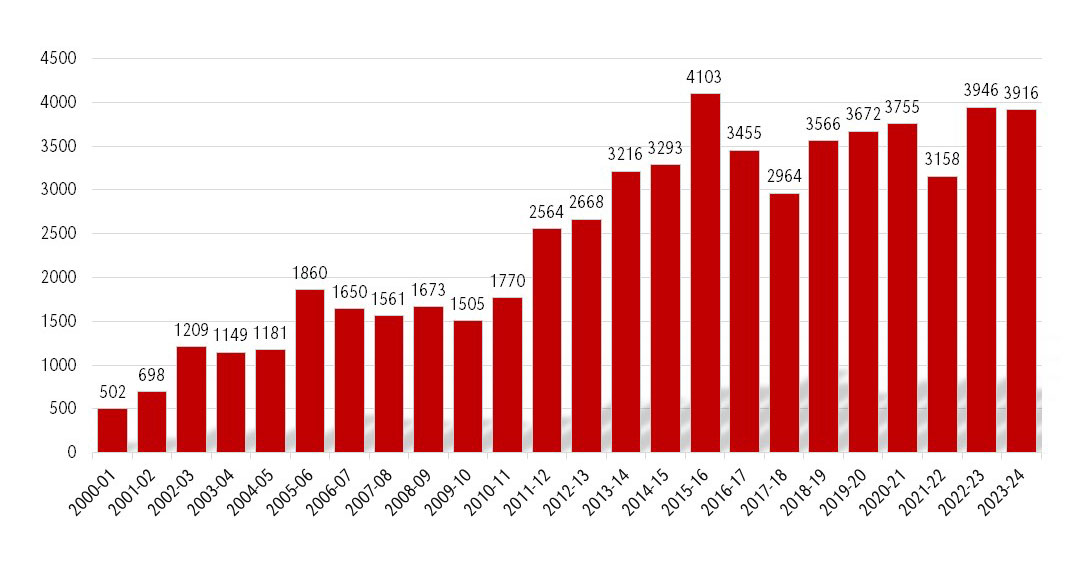The impact of service learning has many contexts and can be considered from the university, student, partner, and community standpoint.
Service Learning Over Time
Service Learning Courses

Type of Service Learning Courses
There are three types of service learning courses, including:
- P-16 = UNO course + Community Organization + P-12 School
- Traditional = UNO Course + Community Organization
- Maverick Philanthropy Initiative (MPI) is service learning with a third layer of philanthropic focus
UNO Students in Service Learning Courses
More than 50,000 undergraduate and graduate students have experienced service learning courses at UNO.

Training and Development
SLA facilitates training and professional development for students, faculty members, local educators, and community partners to increase their access to service learning, teaching, and research.
- 1,000 + P-12 educators participated in training to support the practice of service learning
- 2,200 + people participated in the Undesign the Redline Exhibit while on display (2022 to 2024).
- Microaggression Workshops
- Service Learning Seminar
- Service Learning Showcase
- Service Learning Open Houses
- Office Hours and Faculty Fellows Across Colleges
- CultureFest
- Engaged Scholarship with National Leaders in Community Engagement
- Reappointment, Promotion, Tenure (RPT) - Guidance and Insight for Including Engaged Scholarship in
RPT, policies, and practices with Andy Furco - Professional Development Workshop for Faculty: Engaged Scholarship with Patrick Green
2023-2024 Impacts
P-16 Initiative
47 schools as community partners that actively participate in P-16 Initiative service learning course development and success.
- 14 Middle/Elementary Schools
- 24 High Schools
- 9 After School Programs
1,165 elementary, middle, and high school students engaged with UNO students in service learning courses.
Maverick Philanthropy Initiative (MPI)
$13,000 funds awarded to community nonprofits while students practice philanthropic giving in Maverick Philanthropy Initiative (MPI) service learning courses.
Stephenson-Harrington Internship Program
670 + internship hours completed by Goodrich Scholars as interns in the program. Interns completed their hours at 7 different community partner sites funded through the program.
Student Retention and Skill Building
Students who enroll in a UNO service learning class have a 10% higher student success (retention and graduation) rate.The SLA supports UNO faculty members in developing service learning courses in collaboration with community organizations, governmental agencies, businesses, and P-12 faculty. Projects that serve the community and create valuable learning experiences for UNO students are implemented. Students learn beyond the classroom by applying their knowledge to real-life situations and building workforce skills as community-engaged future professionals.
The UNO SLA's 2019-20 report indicated that 89% of UNO students developed public speaking skills, and 99% developed teamwork, problem-solving abilities, critical thinking, and leadership skills.Hear From UNO Students
Here’s what UNO students think of service learning according to the 2018-19 Student Surveys.
- "It is a great experience everyone should get the chance to do."
- "It's a fun way to combine traditional learning with community service."
- "Service learning, in general, is extremely beneficial to skill-building!."
- "This experience helped connect course content to real-life situations, which was invaluable."
- "It is a great way to get outside of your comfort zone and see more of the community."
- "It's much more fun than traditional classroom education!"